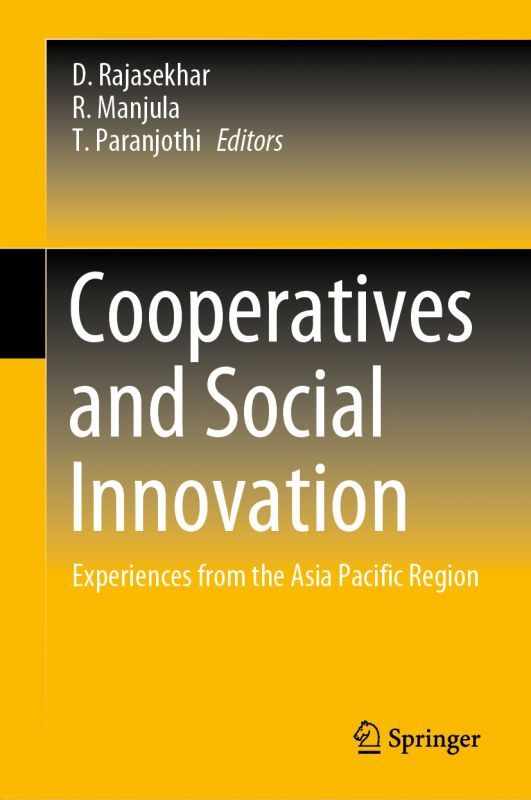Cooperatives and Social Innovation - Experiences from the Asia Pacific Region

Cooperatives and Social Innovation - Experiences from the Asia Pacific Region
Editors: Rajasekhar, D., Manjula, R, Paranjothi, T (Eds.)
This book discusses social innovations by cooperatives from the Asia and Pacific region. Social innovations emerge when the state and market in developing countries find it difficult to solve problems such as poverty, hunger, ill health, poor education systems, inadequate drinking water and poor sanitation. These countries also face barriers to economic growth such as climate change, poor governance, unequal opportunities and social exclusion. This volume therefore addresses the following questions. What are the distinctive features of social innovations by cooperatives? How social innovations bring in changes in the process and outcome of development?
After presenting theories of social innovation and a critical review of cooperatives and social innovation, the book presents 15 chapters on social innovations by cooperatives in the Asia Pacific region. These social innovations are related to health insurance, community based tourism, disaster response, climate smart agriculture, use of social media for youth empowerment, training for the emergence of second-line leaders in cooperatives, social inclusion through innovative finance, profitable marketing of organic produce to strengthen economic status of small farmers, digital auction and value addition for income security of farmer members, collaboration between cooperative members and workers for the mutual benefit, worker cooperatives, women leadership and participation, building union-cooperative partnership in finance and rating of cooperatives to promote transparency and accountability. A chapter on innovative services of cooperatives during the time of Covid19 is also included.
This volume will be quite significant for co-operators, researchers, teachers, practitioners and policy-makers at the global level. The theme is relevant for international development community and national cooperatives with concern for their communities, which is the seventh cooperative principle of International Cooperative Alliance and the Sustainable Development Goal of the UN.
This volume is based on the papers presented at the 12th ICA-AP Regional Research Conference, Seoul, 2017. For more information, please visit the webpage of the publisher, HERE.
Table of Contents
- Cooperatives and Social Innovation: Experiences from the Asia Pacific Region
- Concept and Theories of Social Innovation
- Cooperatives and Social Innovation
- Health Insurance as Social Innovation for Farmers in Cooperatives: Lessons from Yeshasvini in Karnataka, India
- Community-Based Tourism Through Cooperatives in Sabah, Malaysia
- Failed Market-Oriented Society and Working Co-ops’ Biodiesel-Based Food Systems After the Great East Japan Earthquake
- Role of Cooperatives in Climate Smart Agriculture
- Social Media as an Effective Tool for Social Innovation in Indian Cooperatives
- A Phenomenological Study of the Lived Experiences of PHCCI Summer Youth Program Tutees Turned Lab Coop Officers
- Cooperative and Social Innovation in Finance—A Case Study of Mann Deshi Mahila Sahkari Bank
- Cooperative Sector Grading—A Social Innovation in Finance
- Social Innovations in Organic Foods in Rainfed India: The Case of Dharani FaM Coop Ltd.
- Social Innovative Enterprises: Ubiquitous Cooperatives in the State of Tamil Nadu, India
- The Commitment of Cooperative Workers to the Movement: The Case of Japanese Consumers Co-op
- Worker Cooperatives: A Social Innovation to the Issue of Contractualization in the Philippines
- Creating Space for Women Leadership and Participation Through Innovative Strategies: A Case of Tribal women’s Dairy Cooperatives in Gujarat
- Democratizing Capital: Building Union Coop Partnerships Through Economically Targeted Investing and Crowdfunding Innovations
- Asia Pacific Cooperatives Responding to Covid-19 Crisis
- Cooperatives and Social Innovation: Conclusions and the Way Forward
